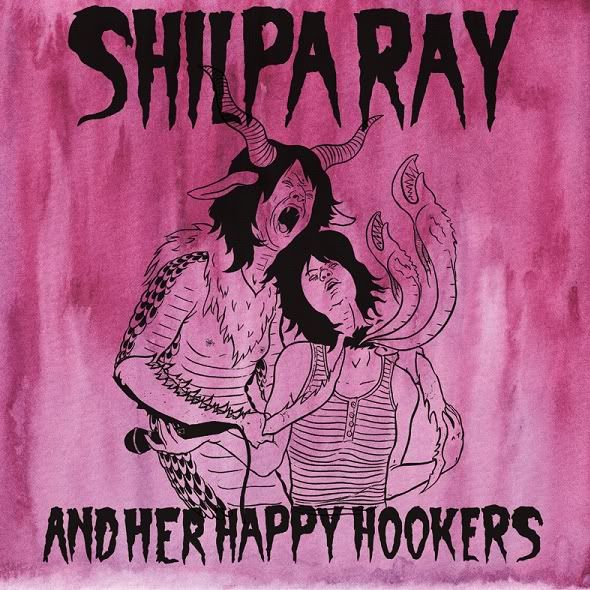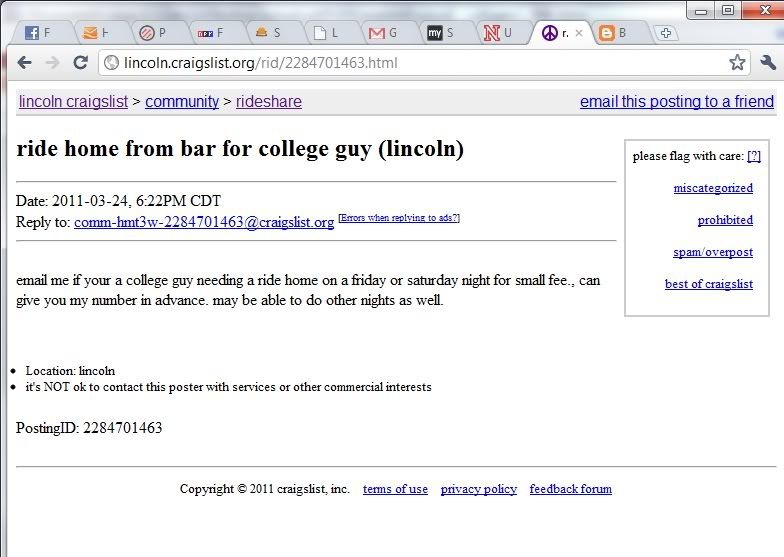29 April 2011
Francoise Hardy - Le Temps de l'Amour
TIME OF LOVE
"RED SHIFT," Ted Berrigan
"I'm only pronouns, & I am all of them, & I didn't ask for this You did / I came into your life to change it & it did so & now nothing will ever change"
Listen to a recording of Berrigan's "Red Shift" at Penn Sound and read the entire poem on Buffalo's site. Its good, so very good.
28 April 2011
27 April 2011
“I’m against language. It usually sucks.”
But I’m Talking
Your hands like the smallest airplanes, exploding
all around your face, and outside the factory
stand the dark trees, their shivering limbs. I tell you this
not because I know the landscape, but because
I know how much this means to you. Labor’s
elegant machinery: bodies and their bones still
too strong to be bones—such weight
against the earth, wind as chilly as a thousand knives…
And the system’s in place. What a process when you tell me
my shirt’s on fire, this process
and this productivity. There’s the mouth you speak through.
Such strange warmth I should remove.
Your hands like the smallest airplanes, exploding
all around your face, and outside the factory
stand the dark trees, their shivering limbs. I tell you this
not because I know the landscape, but because
I know how much this means to you. Labor’s
elegant machinery: bodies and their bones still
too strong to be bones—such weight
against the earth, wind as chilly as a thousand knives…
And the system’s in place. What a process when you tell me
my shirt’s on fire, this process
and this productivity. There’s the mouth you speak through.
Such strange warmth I should remove.
Lennox and Co.
Remember when, as a youth, you used to jam out to this sweet video and/or song? Yeah you do, stop pretending like you didn't
26 April 2011
MUSTACHE
This bro writes and reads poems just like Trud Moody and Jerf Alessandrelli: trouser tightening and moisture inducing!
25 April 2011
Strange Victory/Strange Defeat

This photo is noteworthy only to the extent that nowadays remembering a concert is less important when compared to remembering that you remembered to film a brief period of a concert so that you could later forget it. The screen of life/etc./et al…
22 April 2011
HIGHER EDUCATION
Today I was informed by an upper-level educator (i.e. bureaucratic) at a nationally recognized, Research I institution that, as an instructor of English, it is not my job to "expand student minds," but teach them how to write "crisp prose" that will enable them to compose better and more efficient reports once they find jobs and enter the work-force in sales departments, accounting firms, and veterinaries. The below video is, more or less, what "higher education" has become. America, you are so awesome:
20 April 2011
Little Idea by Michael Loughran
You step into the pink air, a tree wiggles and leans.
Between two limbs a gap, through the gap the sky’s hot mouth.
It fills the tree sitting blankly in the sky that fills the bird and fills its song.
When the sky lowers through you, through your center,
let it settle there—do this every single day.
It takes forever.
Between two limbs a gap, through the gap the sky’s hot mouth.
It fills the tree sitting blankly in the sky that fills the bird and fills its song.
When the sky lowers through you, through your center,
let it settle there—do this every single day.
It takes forever.
19 April 2011
Recent LP Purchases
These are three LPs that I recently purchased, all of which create a certain snugness in my inseam. Purchase them by clicking on their respective images.
 |  |  |
18 April 2011
16 April 2011
Lewis & Clark

I'm writing about (or rather, with) these yahoos for my final project in Great Plains Lit. Reminds me: Alessandrelli & Ware; Ware & Chavez; Shepard & Alessandrelli. I could go on.
15 April 2011
14 April 2011
I worry about this too
Yet one more factor comes into play, and not all cocktail mavens are enthusiastic about it. In recent years, spirits makers have recruited and signed prominent, knowledgeable bartenders as “brand ambassadors,” financing their travel to bars far and wide, where the drinks they make include the gin, bourbon or tequila they represent. “I worry that a lot of young bartenders are being snapped up too soon, and they’re going to look back at when they were making drinks just to make drinks and feel a sense of having left their best years behind them,” said Jim Meehan, general manager of the bar PDT in the East Village. He himself does work for Banks 5 Island Rum, though it has followed many years of shifts behind the bar.
13 April 2011
"And, like, I drove through the hood w/ my electric wheelchair..."
Anyone can be gangster, all you really have to do is steal an electric wheelchair and fuck shit up on the basketball court with a bouncy ball:
12 April 2011
Tub Reading: From “The Life of Brutus” in Makers of Rome by Plutarch
The conspirators had already barricaded themselves in and were able to fend off the danger, but there was a man named Cinna, a poet, who had no connexion with the crime, and was actually a friend of Caesar’s. He dreamed that he had been invited by Caesar to supper and had declined, but that Caesar had pressed him to come, and had finally taken him by the hand and led him to a vast and gloomy place, into which he had followed his host reluctantly and with a feeling of horror. After the vision had left him, he found himself attacked by a fever which lasted all night. However, when morning came and Caesar’s body was being carried out to his funeral, he felt ashamed not to be present and went out to join the crowd, who were by now in a savage mood. There he was seen, and since the crowd did not know who he was, but mistook him for the Cinna who had recently denounced Caesar in his speech, they tore him to pieces.
11 April 2011
Forest from the Trees
Bob did not realize that splitting open his lover's head could be interpreted as a violent act. I'm glad he didn't love (know) me; or, I don't know, maybe I would have enjoyed a cracked skull. In any case:
And then one of my favorite Creeley poems gets a vocal-butchering by some dude; although, the animation by Chad Edwards looks pretty solid:
10 April 2011
Patches: Almost as Good as a Chimp
Its my dream to one day own a chimp as a pet because it could double as a domesticated friend and a house servant. Apparently, though, if you train them well enough, a horse can do this as well:
Laurel Nakadate, Stay the Same Never Change, 2008
08 April 2011
Where is he?

Let me be the first to ask what has been on all our minds as of late: What has Hammy Hamburglar been up to? What could his silence mean?
"Having a Coke with You"
Maybe somebody drinks Coca-Cola, maybe somebody doesn't drink Coca-Cola; maybe I drink Coca-Cola, maybe I don't drink Coca-Cola. Maybe just watch and listen to O'Hara and not worry about all that so much:
THE MALTESE FALCON
Last night, I watched the Humphrey Bogart classic The Maltese Falcon. The film is exemplary of early, American cinema and demonstrates why that era, to this day, remains so lauded. My favorite scene in the movie occurs at the 1:53 mark in this video. Unfortunately, the uploader disabled the embed function, so you'll have to click through. Pay attention to the cigarette in Bogart's mouth as he goes fist-to-cuffs with an effete Peter Lorre. Brilliant. If you don't find this funny, you are not human.
07 April 2011
This Isa Nice Neighborhood

If a neighborhood, by definition, is "a district or locality, often with reference to its character or inhabitants," Farid Matuk's This Isa Nice Neighborhood from Letter Machine Editions explores the ramifications of a increasingly global culture and economy on the neighborhood-concept through the aesthetic lens of a poetry. A poem such as "Hollywood," for instance, presents the reader with a personal, thus local, scene in its incipient lines: "Why shouldn't I take your pills / you've got the hospice Percocet all day" (69). If we assume, based upon the poem's title, that we can locate the speaker in Los Angeles, an abrupt alternation in geography occurs just one line later: "normally that lane in Kabul would be thick / with schoolgirls / but the Taliban came through." Moments later, the speaker states: "I'd like to go piss outside / to affirm life Dallas is / everywhere"; then, once again, the poem returns to Afghanistan, but via a British television broadcast: "President Karzai is not afraid, BBC says." Such dislocations occur throughout the poem, as well as throughout the collection as a whole, but these dislocations, or "parts of the poem / levitate at once / into a constellation" (73) so as to develop a loose but highly constructed relationship with one another.
Toward the poem's closing, the speaker informs us that "we said Hollywood without end / until it meant nothing and your home / was in your voice." To wit, the speaker suggests that the proliferation of naming (or viewing or clicking-through that matter) in our contemporary culture has evacuated the particularized "character" out of our localized neighborhoods; while this, no doubt seems a bit fatalistic, hope resides in the articulation of the now absent as it re-locates within "your voice." Of course, this is by no means a resolution, as we've already been told throughout the collection of the dangers or mis-communications inherent to that "voice." Take, for instance, the first stanza of the poem "Of Our Porvenir (future, fortune)":
Montezuma meets Cortés
Pizarro greets Atahualpa
each says I can't imagine
what will come their interpreters
say neither can we (37)
The "interpreters," unable to translate these disparate voices, do not know "what will come" with regard to language, and neither do the indigenous leaders nor their European counterparts know "what will come" with regard to their cultural narratives. But, we as contemporary readers do know "what will come"; and, at least for the Incas and the Aztecs, it is a sad tale of genocide. This certainly does not mean that localized/particularized narratives disappear, or that European-based narratives will maintain a rigid and eternal hegemonic stranglehold upon historical and cultural development, but the passage does signal, or allude to certain power struggles expressed through/in "voice" and language that occurred, occur, and will occur when neighborhoods interact, conflate, and re-organize. Or, as the in media res poem "All Stories Great and Small" begins:
are over. are being allowed to merge
by a friendly motorist. are on their way.
are having their wrists turned
toward the sun, someone having demanded, show yourself.
are loving your high, Elizabethan brow
so much they say, blah, blah, blah. (5)
In these opening lines, then, the speaker tells us that narrative (i.e. "All Stories") "are over," but also that they "merge" into some busy thoroughfare of a general history or modern narrative, perhaps. Likewise, something orbital (transcendent?) demands that a narrative "show yourself," in some hope, maybe, of transparency as to their construction; or, just as likely, a modern narrative, such as US Weekly or TMZ, may only be concerned with entertainment and its corresponding aesthetic features (i.e. a "high, Elizabethan brow") that comes to and through us as nothing more than "blah, blah, blah."
Of course, poems that convey the political or social oftentimes read as didactic or heavy-hand, but Matuk guards against this by implicating the speaker of his poems, thus communing with his readers, as well as those others he implicates. In the closing piece "Tallying Song," the speaker declares:
I am 34
my bank account
keeps growing slow
the dog is safe, healthy
we have jobs
nothing to stop us (125)
Regardless of contemporary society's ills, or the ills of previous societies that enabled us to arrive at where we are today, the speaker (whether sarcastically or sincerely) acknowledges an ease within his rather bourgeois life-style, one that predicates itself upon uneven binaries and power dynamics so as to maintain an existence that allows for the following:
It's Saturday
the sun looks warmer than it is
I've rolled down my pinstripe oxford
to full sleeves
slipped into my cardigan
a macaroon in
my mouth
flowers in our neighbors' yard
about their plaster fountain
I dress in the styles
of the rich
feel safe (126)
In the end, I would argue that the strength of This Isa Nice Neighborhood is that it does not cater to a final resolution or look for a way to tidy-up the complex relationships, whether economic, cultural, sexual, or national, that we encounter in today's world. Instead, we are left, mostly, with questions for how we can best navigate these new boundaries of the global-neighborhood wherein we now find ourselves. To this extent, Matuk's speaker asks near the close of the collection: "By what means and bodies do we make extensions, change ourselves, I mean in the real world, which is the one we make?" (128) In the question, perhaps, lies the answer.
Toward the poem's closing, the speaker informs us that "we said Hollywood without end / until it meant nothing and your home / was in your voice." To wit, the speaker suggests that the proliferation of naming (or viewing or clicking-through that matter) in our contemporary culture has evacuated the particularized "character" out of our localized neighborhoods; while this, no doubt seems a bit fatalistic, hope resides in the articulation of the now absent as it re-locates within "your voice." Of course, this is by no means a resolution, as we've already been told throughout the collection of the dangers or mis-communications inherent to that "voice." Take, for instance, the first stanza of the poem "Of Our Porvenir (future, fortune)":
Montezuma meets Cortés
Pizarro greets Atahualpa
each says I can't imagine
what will come their interpreters
say neither can we (37)
The "interpreters," unable to translate these disparate voices, do not know "what will come" with regard to language, and neither do the indigenous leaders nor their European counterparts know "what will come" with regard to their cultural narratives. But, we as contemporary readers do know "what will come"; and, at least for the Incas and the Aztecs, it is a sad tale of genocide. This certainly does not mean that localized/particularized narratives disappear, or that European-based narratives will maintain a rigid and eternal hegemonic stranglehold upon historical and cultural development, but the passage does signal, or allude to certain power struggles expressed through/in "voice" and language that occurred, occur, and will occur when neighborhoods interact, conflate, and re-organize. Or, as the in media res poem "All Stories Great and Small" begins:
are over. are being allowed to merge
by a friendly motorist. are on their way.
are having their wrists turned
toward the sun, someone having demanded, show yourself.
are loving your high, Elizabethan brow
so much they say, blah, blah, blah. (5)
In these opening lines, then, the speaker tells us that narrative (i.e. "All Stories") "are over," but also that they "merge" into some busy thoroughfare of a general history or modern narrative, perhaps. Likewise, something orbital (transcendent?) demands that a narrative "show yourself," in some hope, maybe, of transparency as to their construction; or, just as likely, a modern narrative, such as US Weekly or TMZ, may only be concerned with entertainment and its corresponding aesthetic features (i.e. a "high, Elizabethan brow") that comes to and through us as nothing more than "blah, blah, blah."
Of course, poems that convey the political or social oftentimes read as didactic or heavy-hand, but Matuk guards against this by implicating the speaker of his poems, thus communing with his readers, as well as those others he implicates. In the closing piece "Tallying Song," the speaker declares:
I am 34
my bank account
keeps growing slow
the dog is safe, healthy
we have jobs
nothing to stop us (125)
Regardless of contemporary society's ills, or the ills of previous societies that enabled us to arrive at where we are today, the speaker (whether sarcastically or sincerely) acknowledges an ease within his rather bourgeois life-style, one that predicates itself upon uneven binaries and power dynamics so as to maintain an existence that allows for the following:
It's Saturday
the sun looks warmer than it is
I've rolled down my pinstripe oxford
to full sleeves
slipped into my cardigan
a macaroon in
my mouth
flowers in our neighbors' yard
about their plaster fountain
I dress in the styles
of the rich
feel safe (126)
In the end, I would argue that the strength of This Isa Nice Neighborhood is that it does not cater to a final resolution or look for a way to tidy-up the complex relationships, whether economic, cultural, sexual, or national, that we encounter in today's world. Instead, we are left, mostly, with questions for how we can best navigate these new boundaries of the global-neighborhood wherein we now find ourselves. To this extent, Matuk's speaker asks near the close of the collection: "By what means and bodies do we make extensions, change ourselves, I mean in the real world, which is the one we make?" (128) In the question, perhaps, lies the answer.
06 April 2011
Gary Stewart - She's Acting Single, I'm Drinking Doubles
tumblr
Go Tell It On The Mountain

I had a dream with George Wendt in it last night. We were hanging out in an empty swimming pool. Also in attendance: Kanye West, various nondescript, intelligible friends and various nondescript members of the notorious “Bloods” gang.
05 April 2011
Hideous. Irremediable.


As if painted with mud. Hideous. Irremediable. Like the designs schoolchildren make by squeezing flies between the folds of a sheet of paper. Worse.
Just some of the typical critical comments made regarding Cézanne’s work the year before his death.
03 April 2011
The Effects of Blinking
You blink and find yourself in the post-post-modern; you blink again, only to find that you're now in the post-post-post-modern; you blink once more, and, to your dismay, its now the post-post-post-post-modern. You decided its best to just stop blinking so you can catch up.
Smoulder
A meta-metaphor for passion, conscious of its own construction, in The Age of Digital Communication (Click for bigness):

02 April 2011
Drinking Money by Michael Klein
In 1939, when my mother was seven years old, the lyricist Lorenz Hart gave her a photograph of himself on which he had inscribed in midnight blue ink: For Kathryn Jacqueline, from Lorenz Hart, whose name will probably be forgotten by the time she is able to read this. Hart had been a friend of my grandfather, Jack Osterman, a vaudevillian, and I suppose the two had known each other—albeit briefly—in the forties. My mother kept that photograph for many years and I remember reading it for the first time and thinking what an extraordinary thing for someone to say to a child—as if childhood had in it the same kind of unpredictability and loneliness that fame did. I inherited that photograph after my mother’s death and sold it to an autograph dealer on 18th Street in the ‘70s for drinking money.
Subscribe to:
Posts (Atom)











